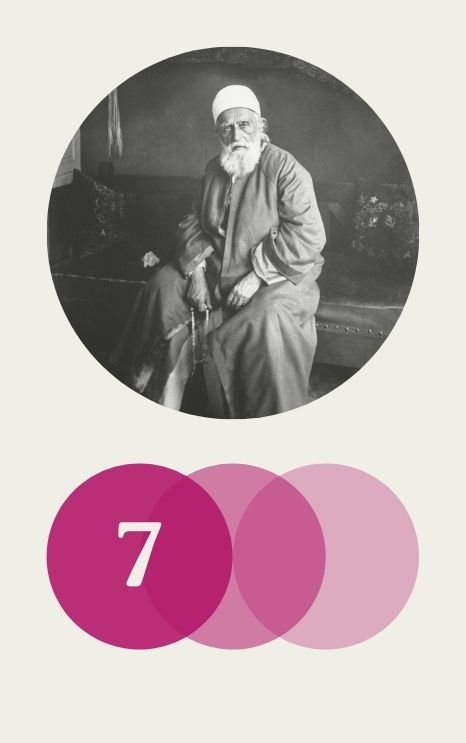Throughout history, humanity has grappled with the concept of service—what it means to be of true service to one another. The Bahá’í teachings provide profound insights into this theme, particularly in the exploration of the role of the individual as a “Servant to All Humanity.” In Episode Seven of the enlightening series “Ambassador to Humanity,” listeners are invited to delve into the intricate nuances of this calling, a role transcending mere transactional interactions to one epitomizing selflessness, dedication, and profound humanity.
The title itself, “Ambassador to Humanity,” encapsulates the essence of this contemplative journey. It signifies not merely a representative or a spokesperson but a paradigm of altruism—an embodiment of the collective potential of human beings. This episode urges its audience to reevaluate their personal narratives, challenge existing paradigms, and embrace a more expansive understanding of service.
Central to Bahá’í thought is the assertion that every person holds intrinsic value as a whole being. The episode articulates a transformative promise: that by adopting the mindset of a servant, individuals can engender a seemingly radical shift in both personal and collective consciousness. This shift tends to dismantle archaic hierarchies and engender a culture that prioritizes unity, harmony, and compassion.
To appreciate the depth of the Bahá’í perspective, it is crucial to explore the concept of “servanthood” as depicted within the teachings. Contrary to common societal notions that often conflate servitude with subservience, Bahá’í principles reconnect this notion with its foundational essence—selfless service driven by love and fellowship. It propounds a redefinition of strength; true strength lies in humility and the ability to uplift others.
Historically, individuals who have embraced this path of service, led by their convictions and unyielding resolve to unify humanity, have paved the road to social transformation. Through the lens of the Bahá’í faith, one can draw inspiration from various historical figures who have embraced their roles as servants to humanity. These figures, often unsung heroes, exemplify how individual commitment can yield monumental societal advancements—whether through advocacy for education, the empowerment of marginalized communities, or the promotion of global peace.
Moreover, the episode delves into the dynamics of community engagement that arise from adopting the servant identity. In communities where service is deeply ingrained, a palpable sense of empowerment emerges. Individuals recognize their capacity to affect meaningful change, whether it is through acts of kindness, educational initiatives, or involvement in movements that seek social justice. These undertakings foster interconnectedness among diverse populations, creating a tapestry of shared experiences and objectives.
Another enlightening facet explored in this episode is the geographical breadth of the Bahá’í teachings. It is a rich mosaic that appreciates and respects cultural diversities while asserting the common threads that unite humanity. The Bahá’í ideology elucidates that irrespective of nationality, ethnicity, or background, all individuals are interconnected, much like fibers in a grand tapestry. This perspective invites curiosity and excitement—it challenges listeners to expand their horizons and envision a world where cooperation supersedes competition and where the prosperity of one is viewed as the prosperity of all.
In the quest to become a true servant to humanity, the episode also emphasizes the importance of an inward journey. This inward exploration often requires introspection, assessing one’s biases, limitations, and preconceived notions. This process is not merely personal; it is foundational to developing a collective ethos of service. Each individual must confront their inner landscape to genuinely serve others effectively. This profound call to action enhances one’s understanding of compassion, urging the development of empathy that transcends superficial boundaries.
Furthermore, the Bahá’í teachings advocate for education as an essential tool for achieving this vision of universal service. Education broadens perspectives, dismantles prejudiced views, and cultivates a sense of responsibility toward others. Episode Seven advocates creating educational opportunities that are accessible to all, emphasizing the principle that enlightened minds lead to a more enlightened world, capable of collaborative problem-solving and innovative solutions to pressing global challenges.
Importantly, in embracing the narrative of servanthood, the episode underscores the necessity of resilience. The journey toward becoming an ambassador of humanity is often fraught with challenges and obstacles. However, the stories of those who persevered remind listeners of the inherent strength found in commitment to service and the collective journey towards a better future. Each setback can be seen as an opportunity for growth and fortified determination, further fostering a culture of resilience within communities.
To encapsulate, “Ambassador to Humanity – Episode Seven: Servant to All Humanity” invites its listeners to embark on a transformative journey that reexamines the very nature of service. Through a multifaceted exploration of historical narratives, cultural intricacies, and educational imperatives, individuals are encouraged to redefine their roles. In doing so, they are poised to effectuate genuine change—both within themselves and the world at large. It is a clarion call, one that promises not only a personal metamorphosis but catalyzes a global movement toward unity, compassion, and shared stewardship. The teachings inspire an invigorating curiosity about the power of collective human action, instilling hope for a brighter, more unified tomorrow.
